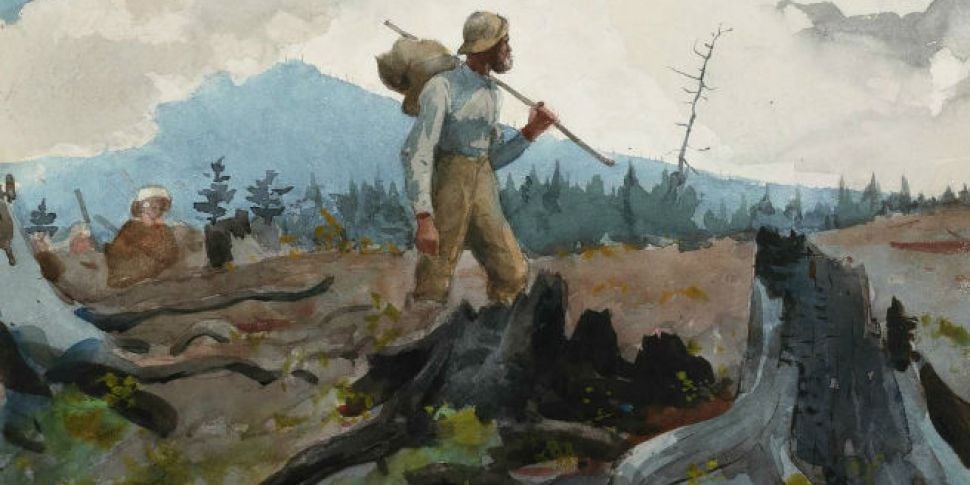In July 1845 Henry David Thoreau moved into a small isolated cabin he built near Walden Pond in Massachusetts. He would stay here for two years, two months, and two days in an effort to “live deliberately”. During this time Thoreau would hone his philosophy of simple living and lay the foundations for his two greatest works: Civil Disobedience and Walden.
These works became the backbone to numerous movements in America and the wider world. Environmentalists, hippies, libertarians, anarchists, and conservatives all look to Thoreau for guidance and inspiration. For many he is the iconic figure who struck out from society to live and survive on his own.
While Thoreau did hope to become self-sufficient during his time at Walden he never came close to achieving this dream. His two years, two months, and two days were shot through with visits from friends and family and trips to the nearby town, Concord. Yet total isolation was never Thoreau’s aim and in Walden he readily admits that his cabin lies a short two miles from his family home.
In secluding himself away and stripping away the comforts of modern living Thoreau hoped to discover the meaning of life, “to live so sturdily and Spartan-like as to put to rout all that was not life”. In this task he was largely successful.
After two years, two months, and two days he emerged with the experiences needed to compose one of the most important treatise on personal liberties and the magnum opus of nature writing. As noted American writer Michael Sims describes it: “[Thoreau] gradually grew from a sort of smart aleck teenager point of view to someone who was qualified to critique the world around him and suggest alternatives”.
The first of Thoreau’s great post Walden Pond works was Civil Disobedience. Driven by his distaste for slavery and the Mexican-American War Thoreau had refused to pay poll tax. This saw him arrested in July 1846. He was released after only one night when someone paid his outstanding taxes.
This moment left a strong impression on Thoreau and, after leaving Walden, he began to deliver lectures on the duties of the individual in society. These lecture evolved into Civil Disobedience the central tenet of which was that everyone was obliged to follow their conscious and actively oppose and resist any element of government or society they believed to be wrong.
Still celebrated across the political spectrum today, Civil Disobedience became incredibly important during the 21st century. Influencing numerous writers and thinkers Civil Disobedience was most important in the impact it had on Martin Luther King, Jr and Mohandas Gandhi. Using non-violent actions informed by Thoreau's philosophy both of these men helped to shape the modern world, securing racial equality and Indian independence respectively.
Nine years after leaving for his cabin in the woods Thoreau published Walden.
Though not initially well received Walden has since come to be regarded as one of the greatest and most important pieces of American writing. Condensing Thoreau’s experiences into a one year cycle, Walden makes the case for living a simple life in touch with nature. The comforts and conveniences of modern living, Thoreau argues, are hindrances to truly living. As he puts it: “Money is not required to buy one necessity of the soul.”
These sentiments have found resonance with the generations that have followed and those who seek to return to nature are in some way following in Thoreau’s footsteps. Though not the only one responsible Thoreau helped to liberate god from the church, make nature something beautiful that should be revered, and put the self at the centre of the indivdual’s life.
As Michael Sims puts it: “For all of his questioning [Thoreau] did not attempt to establish any doctrine...Today he is the patron saint of civil liberties, of ecology, and of nature writing”.
Join Susan Cahill, the host of Talking Books, as she talks with Michael about his new book, The Adventures of Henry Thoreau: A Young Man's Unlikely Path to Walden Pond, and the life and philosophy of Henry David Thoreau.
Rounding off the show Susan talks with Labour MP and chair of the All-Party Parliamentary Group against Antisemitism about his new book, Antisemitism: The Oldest Hatred, and why this intolerance is a growing and ever silent threat.
This week’s music to read to
The show opens and closes with Indian Summer by Jonsi & Alex with their song Happiness playing out of part one.









